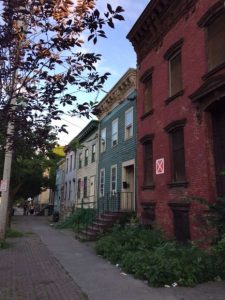- Home
- About Us
- Our Communities
- Bartlett Gardens
- Beechwood Family Apartments
- Centerville Court
- Charlotte Square at the East End
- Charlotte Square on the Loop
- Clinton Avenue Apartments
- Clinton Avenue Apartments II
- College Greene
- Commercial Properties
- Eastgate Apartments
- East Lake Commons
- Eastman Gardens
- Elmer Gardens
- Farmington Gardens
- Farmington on the Creek
- Flower City Apartments
- Frederick Douglass
- The Gardens
- The Gardens at Penfield Square
- The Gardens at St. Anthony's
- The Gardens at Town Center
- Glenwood Gardens
- Harper's Corner
- Heritage Gardens
- Huntington Apartments
- Holley Gardens
- Keuka Gardens
- Kibler Senior Apartments
- Liberty Square
- Lincoln Gardens
- Muldoon Gardens
- Oak Creek Townhomes
- Ogden Gardens
- Owego Gardens
- Renaissance Square
- Tailor Square
- Thurston Road Apartments
- Union House Apartments
- Union Square
- Voters Block
- Warfield Square
- Solar Farm
- Sunlight Lane
- Development
- Management
- Contact Us
$8M property tax reduction sought for Clinton Ave. project in Albany
networx 11/30/2017
Buildings part of previously failed housing projects
BY AMANDA FRIES
ALBANY – Developers over the years have aimed to revitalize Clinton Avenue buildings into affordable housing in the Arbor Hill neighborhood.

Henry Johnson Boulevard and Clinton Avenue intersection is included in a plan to rehabilitate roughly 70 buildings along Clinton Avenue in Arbor Hill. (Amanda Fries / Times Union)
But plans have always fallen short – mostly due to a lack of funding and the challenge of maintaining dozens of separate properties.
But a Rochester-based developer says they have the means and experience to rehabilitate roughly 70 buildings in Arbor Hill if they can secure historic and low-income housing tax credits and an $8 million reduction in taxes through the city’s Industrial Development Agency.
“We do have some properties in Rochester that are scattered sites,” said Adam Driscoll, development manager for Home Leasing. “We feel we have a very good system, and a very strong staff and support staff and resources to be able to do as best we can.”
Home Leasing boasts a large portfolio of affordable and senior housing complexes across western New York as well as some in Maryland and Pennsylvania.
The Rochester developer in August purchased the Arbor Hill homes from Clinton Revival Housing Development Corp. for $3.3 million – a total of 220 units – stretching from Henry Johnson Boulevard to Ten Broeck Street on Clinton for a nearly $48 million affordable housing project, according to the project portfolio submitted to the IDA.
All the buildings will get new roofs, windows, plumbing and electrical, among other improvements, and will offer studios, one-, two- and three-bedroom apartments to those who meet certain income thresholds, Driscoll said.
The project strays from the typical 10 percent shelter rent affordable housing projects provide in Albany. Affordable housing developers typically do not pay traditional property taxes, instead paying a small portion of the total rent they collect on units, a so-called shelter rent. Home Leasing’s request would pay 5 percent shelter rent – amounting to about $2.5 million in revenue to the city over 30 years. The properties have been off the tax rolls for the past 11 years.
Capitalize Albany President Sarah Reginelli said the challenge of managing scattered sites – multiple HVAC systems, electrical and plumbing – coupled with the investment needed and the project’s needed affordability requires more financial support.
“The investment level that Home Leasing is ready to make on the project in addition to their really locally-focused management plan was exciting to see,” Reginelli said. “They are taking things a bit differently than in the past.”
In the 1980s, Vulcan Development Corporation acquired the buildings to provide low- and moderate-income rental units, but the corporation couldn’t afford to continue. Vulcan officials had said the project ran into trouble due to people unwilling to move to the area because of it being perceived as high crime. The properties were taken over by a creditor in the mid-1990s, according to Times Union archives.
The buildings in 2001 were bought by Clinton Revival Housing Development Fund Corporation – a not-for-profit started by Stanley Rosenberg, of Rosenberg Construction Development, and his partner.
“We were looking to turn these properties into homeownership. Unfortunately, we just couldn’t do it,” Rosenberg said.
The recession made funding scarce, plus managing dozens of separate buildings – some of which were vacant when purchased – was difficult with a small staff, he said.
“They were taking out copper, cutting the pipes and the basements would fill up with water. People would have to go around to these buildings every day to make sure things were functioning,” Rosenberg said. “Then in 2014, my partner in this deal passed away.”
Tides have now turned, with investments in the surrounding area, including Sheridan Hollow, activity downtown and in the Warehouse District as well as North Swan Street encouraging further development, Reginelli said.
“All of that investment really strengthens the investment on Clinton Avenue,” she said. “Previously, that had only just begun. They didn’t have the strength to work from.”
With a history of Clinton Avenue building improvements falling flat, residents are concerned the latest proposal could be another flop.
Home Leasing has met with community organizations and stakeholders to discuss the project, and plans to work with the community when it comes to hiring during construction.
“We’re definitely sensitive to that,” Driscoll said. “We’re committed for 30 years.”
About 50 percent of the buildings have tenants, but Home Leasing plans to renovate the vacant buildings first so residents in the occupied buildings can relocate, he said. They hope to begin construction by mid-2018.
“We’re super excited to be working with the state, and it’s going to be an amazing outcome,” Driscoll said. “It’s going to be a very big, noticeable difference coming down Clinton when we’re done.”


